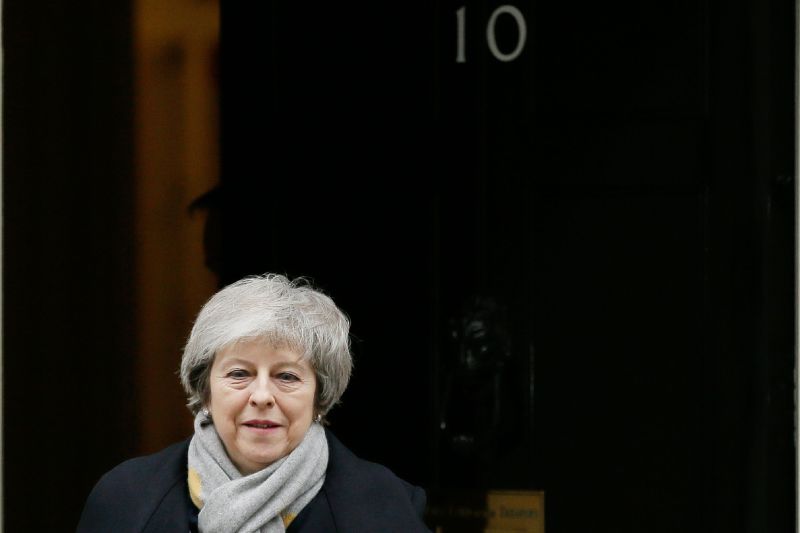
Farming groups have come together to highlight how a 'no deal' Brexit will bring 'severe impacts' as the likelihood of such a scenario becomes likelier following Theresa May's Brexit deal defeat.
The Prime Minister's deal was rejected by 230 votes on Tuesday evening (15 January), the largest defeat for a sitting government in UK parliamentary history.
432 MPs voted against her deal and just 202 for. Labour leader Jeremy Corbyn has tabled a vote of no confidence in the government, which could trigger a general election.
The chances of a 'no deal' scenario has now become likelier, along with a possible second referendum on Brexit.
For the farming industry, such continued political uncertainty is having a serious affect on farmers' confidence.
The UK Farming Roundtable, which consists of organisations representing farmers and growers from all agricultural sectors across the UK, has now warned of the 'severe impacts' that a ‘no-deal’ departure from the EU in March 2019 would have for UK food and farming.
'Trade embargo'
Consisting of groups such as the NFU, National Beef Association and the Soil Association, the Roundtable has made it clear that several 'major and immediate' consequences will happen if the UK leaves the EU with no deal.
For example, the groups say that EU legislation could effectively result in a trade embargo on the export of UK animal based products such as meat, eggs and dairy to the EU.
These products can only be imported by the EU from approved countries, and it could take months for such status to be granted to the UK.
The lamb industry would be particularly impacted. In 2017, 31% of domestic sheep meat production, the equivalent of 4.5 million sheep, was exported and 94% was destined for the EU.
Lower standards
The UK government could also avoid charging tariffs on imports to prevent a rise in food prices, which could have a negative impact on domestic food production and consumer choice, as well as an increase in imports of products produced to lower standards.
Export tariffs could be imposed on the 60% of UK food, feed and drink that go to the EU, increasing export tariffs to an average of 27% on chicken, 46% on lamb, 65% on beef, and range from €172 to €1,494 per tonne in pork.
It is likely that trade barriers will go up between the UK and EU which could limit the availability of many farm inputs such as veterinary medicines, fertilisers, plant protection products, machinery parts and animal feed.
Furthermore, as the EU will no longer recognise UK organic certification bodies, exports of organic products to the EU would be severely curtailed.
Lastly, the Roundtable points to the sudden end of labour mobility from the EU, which would cause serious problems when it comes to securing the necessary labour to harvest and process UK produce, as well as in related roles such as carrying out veterinary inspections.
'Disastrous'
On behalf of the Roundtable, NFU President Minette Batters said: “The members of the Roundtable were clear in their view that a ‘no-deal Brexit’ would be disastrous, not only for our farmers but for the public too, who rely on our ability to provide them with a sustainable, safe and affordable supply of high quality, British food.
“With less than three months until the scheduled day of departure, the Roundtable was concerned that ‘no-deal’ remains a real possibility in the absence of any clear majority for an alternative outcome.
“The Roundtable was particularly concerned that some Parliamentarians continue to make the case that ‘no-deal’ would be a manageable and acceptable outcome to Brexit. Members of the UK Farming Roundtable categorically do not share such a view,” she added.
The UK Farming Roundtable was established shortly after the EU Referendum to provide a unified voice for farming businesses during the EU Brexit negotiation.
